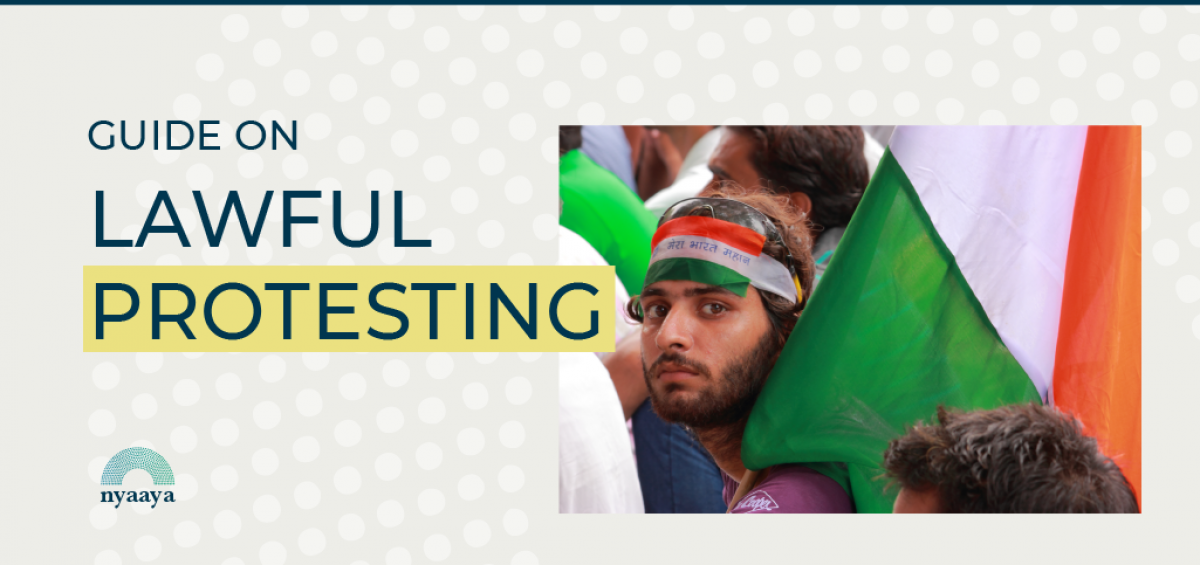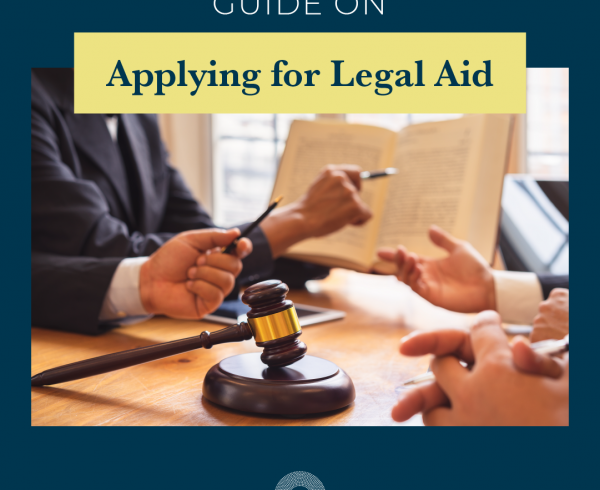How can this guide help you
The Guide to Lawful Protesting helps you understand your right to protest as a citizen and empowers you with the knowledge of how to carry out lawful protests, steps to follow to take necessary permissions from the police or other relevant authorities, and your rights as a protestor.
What are the laws being discussed in this guide
To discuss the relevant laws in place under which you need to acquire permissions to carry out protests, it is important to note that ‘law and order’ is a subject covered under the State list in the Constitution of India, 1950. This means that every State has the power to make its own laws and rules that govern law
Right to Protest
As a citizen of India, your right to protest flows from two fundamental rights guaranteed to you under Article 19 of the Constitution of India, 1950 – freedom of speech and expression and the right to assemble in a public place without arms. However, it is important to know that this right is not an unconditional right and comes with certain limitations and requirements. This means that you can exercise your right to protest by way of a peaceful public gathering provided you take all necessary permissions from authorities and maintain public order while doing so.


How to get permissions for protests
Where to apply?


You need to get a No Objection Certificate (NOC) from the police station within whose jurisdiction you have planned the public gathering for the protest. Some police departments may have a specific form or permission that
Details to include in the application


This application for the NOC or any specific permissions for the protest must have the following details:
- Your name, address, and contact number, along with details of other organisers of the protest.
How to submit the application


Your application can be in a simple letter format with the abovementioned contents if the police department in your city does not have a specific form to be filled.
Permissions for protests when denied or revoked
Can permission for a peaceful protest be denied?


Yes, police authorities can deny permissions for protests. While you have a right to protest, you must know that this is not an unconditional right. There are certain reasonable restrictions2 imposed by the Constitution of India, 1950 on this right under which the police can deny your request. The police can deny your
Can permission for an ongoing protest be revoked?


Yes, permissions for ongoing peaceful gatherings or protests can be revoked by imposing a prohibitory order under Section 144 of the Code of Criminal Procedure, 1973. It is often colloquially referred to as imposing a curfew in a particular area.
If permission is denied, can you appeal?


If your application for holding a public gathering or a rally for a protest gets denied by the Senior Inspector of the police station or the Deputy Commissioner of Police(DCP), you can make an appeal to the Additional Commissioner of Police(ACP).
Prohibitory Orders or Curfews
A prohibitory order is an order passed by either the District Magistrate, Sub-Divisional Magistrate or Executive Magistrate empowered by the State when immediate prevention is required and when such orders or direction would prevent or is likely to prevent:
- Any obstruction, annoyance or injury to any person or a danger to human life
- Health, safety, or disturbance of public tranquility
- Riot or an affray
A Section 144 order is directed either to individuals or a group of persons residing in a


| What happened in the Ramlila Maidan Case?
In 2011, there were mass protests in the country against the rising corruption. One of the groups protesting were Baba Ramdev and his supporters at the Ramlila Maidan in New Delhi. On the midnight of 4-5 June 2011, a prohibitory order under Sec 144 was imposed and protestors were forcibly evicted |
Things to note during protests
Key steps to follow
Always remember to follow the steps given below during any protest:
- Carry permissions with you: Please make sure that you and all other organisers of the protests have copies of the permissions granted to you for the protests along with any other permissions for use of loudspeakers, tents, etc.
- Maintain public order: As an organiser or participant of a protest, it is your fundamental duty to maintain public order and peacefully voice your opinions. Your right to exercise your fundamental right to speech and expression should not violate the rights of other citizens not participating in the protest to access public places or services.
| In 2020, the Supreme Court delivered a judgement in the context of the Shaheen Bagh protests opposing the Citizenship (Amendment) Act, 2019. In its judgement, the Court said that while citizens have the right to peaceful protest, demonstrations which exhibit dissent should take place only in designated places. The Court also said that public ways and public spaces cannot be permanently occupied by protesters, and the right to protest must be balanced with the right of commuters to conveniently access public roads and pathways.5 |
| If you are a woman, please note that your arrest can only be carried out by a woman police official. It is also important to note that women cannot be arrested between sunset and sunrise, i.e. 6 PM and 6 AM. In the exceptional circumstance when the woman has to be arrested at night, the woman police officer has to take permission in writing from the local Judicial Magistrate. To know more about the law on arrest, please read Nyaaya explainer on Arrest. |
What are your rights if you are arrested during a protest
During the course of a protest, if you, as an organiser or a participant, are arrested, you have the following rights:
- Right to inform a family member or friend of your arrest
- Right to access a lawyer. If you can’t afford a lawyer, you can request the services of the District Legal Services Authority.
- Right to be informed about the charges being levied against you that are recorded in the arrest memo
- Right to read and examine the arrest memo before signing it. You must also be given a copy of this arrest memo.
Resources
Emergency Numbers:
- Police Control Room – 100/112
- Ambulance – 102
- Fire Brigade – 101
Checklist
- Check if there is a curfew or any prohibitory orders like Section 144 in the area you want to protest in
- Apply for an No Objection Certificate (NOC) from either the local police or the Deputy Commissioner of Police(DCP) office
- Mention the correct details in the NOC application including duration of protest, reasons for protest etc.
- Obtain separate permission for loudspeakers and tents for the protest
- Make arrangements for first aid, water etc. during protest
- Ensure that the protest is peaceful and without violence


- Article 51A, Constitution of India, 1950[↩]
- Article 19(2) and 19(3), Constitution of India, 1950[↩]
- Mazdoor Kisan Shakti Sangathan v. Union of India and Anr (2018) 17 SCC 324[↩]
- Anuradha Bhasin v. Union of India (2020) SCC Online SC 25; In Re: Ramlila Maidan Incident v. Home Secretary and Ors 2012 (2) Scale 628[↩]
- Amit Sahni v. Commissioner of Police and Ors. CA No. 3283 of 2020, Supreme Court of India[↩]





Leave a Comment